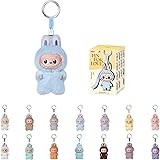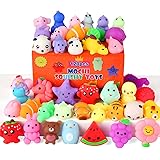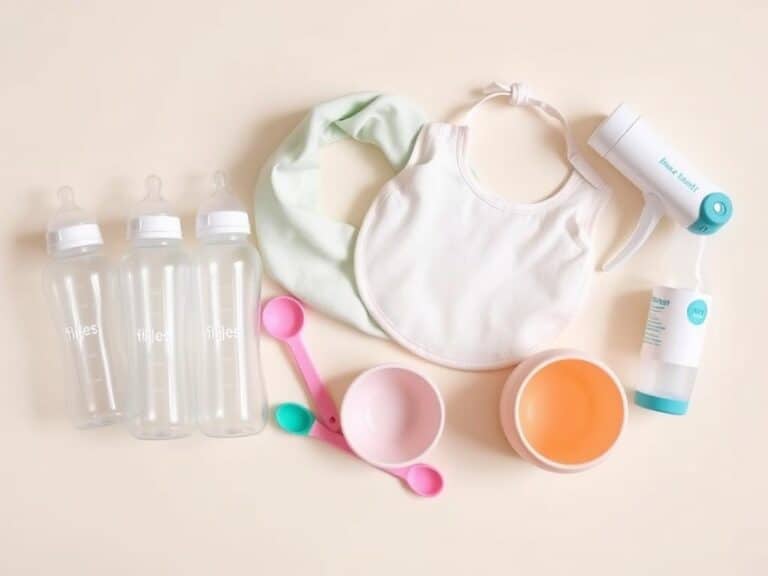8 Postpartum Care Tips No One Tells You About
Play Doh Modeling Compound 10-Pack Case of Assorted Colors, Non-Toxic 2 oz. Cans, Christmas Stocking Stuffer Gifts, Prizes, & Party Favors, Preschool Toys for Kids, Ages 2+ (Amazon Exclusive)
$7.99 (as of January 12, 2026 01:21 GMT +00:00 - More infoProduct prices and availability are accurate as of the date/time indicated and are subject to change. Any price and availability information displayed on [relevant Amazon Site(s), as applicable] at the time of purchase will apply to the purchase of this product.)SEREED Baby Balance Bike for 1 Year Old Boys Girls 12-24 Month Toddler Balance Bike, 4 Wheels Toddler First Bike, First Birthday Gifts
$29.99 (as of January 12, 2026 01:21 GMT +00:00 - More infoProduct prices and availability are accurate as of the date/time indicated and are subject to change. Any price and availability information displayed on [relevant Amazon Site(s), as applicable] at the time of purchase will apply to the purchase of this product.)POP MART The Monster Pin for Love Series (A–M) Mini Labubu Doll Blind Box Keychain – Vinyl Plush Pendant, Bag Charm, Collectible Holiday & Birthday Gift for Kids & Adults, Single Box
$22.99 (as of January 12, 2026 01:21 GMT +00:00 - More infoProduct prices and availability are accurate as of the date/time indicated and are subject to change. Any price and availability information displayed on [relevant Amazon Site(s), as applicable] at the time of purchase will apply to the purchase of this product.)This post may contain affiliate links which means I may receive a commission for purchases made through links at no extra cost to you. I only recommend products I truly believe in. Thank you for your support!
Being a new mom is both exciting and tough. It’s important to focus on your own healing and health too. Here are 8 key tips for a smoother postpartum journey.
Key Takeaways
- Expect up to 10 weeks of heavy bleeding, even after a C-section
- Breastfeeding mothers need an estimated 500 extra calories per day
- Hormonal changes can cause night sweats, hair loss, and more
- Postpartum hemorrhoids can be extremely painful
- Vaginal tears are common and may require stitches
Understanding the Postpartum Period

The postpartum period is a time of recovery and adjustment for new moms. It usually lasts up to six weeks. Some say it can last up to six months. Women go through big physical and emotional changes during this time.
What to Expect Physically and Emotionally
Recovery after childbirth can be different for everyone. It depends on how the baby was born, how long labor was, and if the mom has had babies before. Women might bleed a lot, look pregnant, or have problems from C-sections.
Emotionally, mood swings and “baby blues” are common. About 20-40% of women feel emotional around day 3 after giving birth. This is because of hormonal changes and lack of sleep.
The Importance of Self-Care
Self-care is key during this time for emotional wellness after childbirth. New moms should focus on their needs. This means getting enough rest, eating well, and getting support from family and friends.
Recognizing Signs of Postpartum Depression
While “baby blues” are normal, it’s important to know the signs of postpartum depression awareness. PMADs can affect many women. If a mom feels sad, anxious, or has trouble bonding with her baby, she should get help right away.
“More than half of pregnancy-related deaths occur after the birth of the infant, emphasizing the critical need for postpartum care.”
Understanding the changes in the postpartum period helps new moms. They can better handle this time and take care of themselves. This supports their emotional wellness after childbirth.
The Power of Nutrition After Birth

As a new mom, you’re focused on your baby. But don’t forget to take care of yourself too. Eating right after birth helps you heal, feel energized, and make good milk for your baby.
Essential Nutrients for Healing
Focus on omega-3 fatty acids, iron, and important vitamins in your diet. Omega-3s like DHA help your baby’s brain grow and support milk production. Iron replaces lost blood, and vitamins C, B, and D help fix tissues and keep you healthy. A postnatal multivitamin can cover any missing nutrients.
Meal Prep Ideas for New Moms
Meal prep is a big help when you’re busy with a new baby. Freeze soups, stews, and casseroles for easy meals. Make snack packs with nuts, seeds, and dried fruit. Choose quick-cooking grains, lean proteins, and lots of veggies for balanced meals. Breastfeeding moms need extra calories, about 500 more per day, to make milk.
Drinking enough water is also key. Try to drink eight to ten 8-ounce cups a day. This helps your body recover and makes more milk. With a little planning, you can give your body and baby the nutrients you both need.
“Proper nutrition is the foundation of a healthy postpartum recovery. By nourishing your body, you’ll have the energy and resilience to care for your new baby.”
Managing Sleep Deprivation
Being a new mom can be tough, with little sleep. Feedings, diaper changes, and sleep cycle changes make it hard. But, there are ways to manage sleep loss and get rest.
Tips for Catching Up on Sleep
- Nap when the baby naps. Short naps of 20-30 minutes can refresh you.
- Ask for help from friends or family. Let them watch the baby while you sleep.
- Think about a night nurse or postpartum doula for a few nights a week.
- Share night feedings with your partner. It helps you both sleep better.
- Help your baby learn to sleep alone with soothing techniques.
Creating a Restful Sleep Environment
Creating a calm sleep space can improve your sleep. Here are some tips:
- Make your bedroom cool, dark, and quiet. Use blackout curtains and a white noise machine if needed.
- Stay away from screens and blue light before bed. It helps your body make melatonin.
- Have a relaxing bedtime routine, like a warm bath or reading.
- Avoid caffeine and big meals close to bedtime. They can mess with your sleep.
- Try herbal teas or essential oils for sleep if you can’t take medicine.
Your sleep and energy are key for healing and caring for your baby. Ask for help and make a space for rest. With creativity and support, you can beat sleep loss and do well during this time.
Embracing Help from Others

During the postpartum period, accepting help is key. As a new mom, you might feel overwhelmed and want to do it all by yourself. But, letting others help can greatly improve your recovery and well-being. Let’s look at how to accept support and build a strong network for this important time.
How to Accept Support Gracefully
Asking for help is not easy for everyone. But, it’s a vital skill to learn. Start by thinking about what you need help with, like cooking, cleaning, or taking care of the baby. Don’t hesitate to ask family, friends, or even a postpartum doula for help. Remember, asking for help shows you’re strong, not weak.
Building a Support Network
Surround yourself with people who can offer help in many ways. This could be your partner, family, friends, or a new moms’ group. Joining a group, online or in person, is a great way to share your journey and find support. Postpartum support and new mom help can come in many forms. So, don’t be afraid to try different things until you find what works for you.
“It takes a village to raise a child, and that village starts with your support system during the postpartum period.” – Dr. Sarah Johnson, Pediatrician
You don’t have to face this journey alone. Accepting help from others can give you the practical and emotional support you need. By building a strong support network and accepting help, you’ll be ready to handle the ups and downs of being a new mom.
The Journey of Body Image Changes

The postpartum period is a big change. New moms often struggle with how they see their bodies. Growing and birthing a baby changes you a lot.
Changes like skin issues, stretch marks, and weight shifts can be tough. It’s normal to feel overwhelmed by these changes.
Loving Your New Body
Be kind to yourself during this time. Your body did something amazing. It needs time and care to heal.
Accept the changes in your body. Remember, your body is still beautiful. Celebrate your strength and the life you brought into the world.
Clothing Choices That Make You Feel Good
Choose clothes that make you feel good. Look for soft, comfy fabrics that fit well. Try out new styles like high-waisted pants and empire-waist tops.
Remember, your worth isn’t in your clothes size. It’s in your strength and resilience.
“My body has changed, but it’s a testament to the incredible journey I’ve been through. I’m learning to embrace and love my postpartum body, one day at a time.”
The postpartum period brings big changes. Focus on self-care and wearing clothes that boost your confidence. Celebrate your body’s amazing transformation.
The Role of Gentle Exercise

As a new mom, gentle exercise is key for your recovery. It’s best to start slow and listen to your body. Safe exercises can help you heal and boost your mood.
Safe Postpartum Exercises to Consider
Start with easy exercises like short walks. Women with smooth deliveries might find it easier to start moving. But, if you had a C-section, wait 6 to 8 weeks before lifting anything heavy.
- Gentle walking
- Basic balance exercises
- Prenatal yoga or modified yoga poses
- Kegel exercises to strengthen the pelvic floor
Always check with your doctor before starting any exercise. Watch your pain, bleeding, and energy as you get more active.
How Movement Can Boost Your Mood
Studies show light exercise can cut down on depression by 54 percent. Doctors usually say it’s okay for more intense activities at 6 to 8 weeks. But, start with easy exercises like walks to help you feel better.
“After giving birth, I felt overwhelmed and exhausted, but going for short walks around the neighborhood really helped lift my spirits. It was a simple way to get some gentle movement and fresh air, and I could do it at my own pace.”
Be patient and listen to your body during recovery. With time, you’ll find exercises that help your body and mind.
Finding Time for Yourself
Being a new mom can make it hard to find time for yourself. But, it’s key for your health. Taking breaks helps you recharge and find balance. It’s not selfish to take care of yourself; it makes you a better mom.
Simple Ways to Carve Out Me-Time
- Schedule regular breaks, even if it’s just 15-20 minutes a day. Use this time to do something you enjoy, like reading a book, taking a relaxing bath, or practicing meditation.
- Ask your partner, family, or friends to help with household tasks or caring for the baby so you can have some uninterrupted time to yourself.
- Take advantage of your baby’s nap times to engage in an activity that recharges you, whether it’s a hobby, exercise, or simply resting.
- Consider joining a new mothers’ support group or connecting with other new moms in your community. Sharing experiences and finding solidarity can be incredibly uplifting.
Enjoying Hobbies Outside of Parenthood
Remember the things you loved to do before becoming a parent? Don’t forget them. Make time for your hobbies, even if it’s a little. Activities like painting, reading, or gardening can give you a break and make you feel fulfilled.
“Self-care isn’t selfish. You cannot pour from an empty cup.” – Unknown
By finding ways to take care of yourself, you’ll be better at being a mom. Self-care is not a luxury; it’s a must for new moms.
Mental Health Check-Ins
Being a new mom means taking care of your mind as much as your body. Postpartum depression and anxiety are common. One in eight new moms feel these symptoms in the year after giving birth.
Practicing Mindfulness
Mindfulness can help manage stress and anxiety after having a baby. Try deep breathing, meditation, or journaling. Even a few minutes can help a lot.
When to Seek Professional Guidance
If you feel sad, hopeless, or really anxious, get help. Talk to your doctor or a mental health expert. Postpartum depression and anxiety can be treated.
You’re not alone in this. Many new moms face mental health challenges. With the right support, you can get through it. Taking care of your mental health helps you care for your baby too.
“Taking care of your mental health is just as important as caring for your physical well-being. Prioritize self-care and don’t hesitate to seek professional support if you’re struggling.”
Navigating Relationships Post-Baby
Having a new baby changes our relationships, with our partner and friends. It’s key to talk openly and understand each other.
Communicating With Your Partner
Being parents is a big change. Tensions can rise as you adjust. Talk honestly about what you expect and how things have changed.
Money worries, physical changes, and a new baby can strain your closeness. Be kind and make time for each other. Try to keep your bond strong, even with just a little time together.
Reconnecting With Friends
Your friends may change as you become parents. Some may drift away, but others will grow closer. Talk to your friends about what you’re going through.
This time is tough, both physically and emotionally. Be kind to yourself and others as you adjust. Good communication and support can help you through this.
“Relationships can be impacted by unconscious mind factors such as childhood wounds, unresolved trauma, and attachment styles. Communication is vital in relationships to avoid resentment and find solutions together.”
The postpartum time can be very hard, and even more so for those facing domestic violence. If you’re in danger, call 999. There are also helplines like the National Domestic Abuse Helpline (0808 2000 247) and Men’s Advice Line (0808 801 0327).
Understanding Breastfeeding Challenges
Breastfeeding is a beautiful journey, but it comes with challenges. Issues like sore nipples and engorgement can be tough. But, with the right support, you can overcome these and enjoy breastfeeding.
Common Issues and Solutions
Engorgement is a common problem. It makes your breasts swell and hurts. To fix it, use a warm compress or try hand expressing some milk.
Sore nipples often happen when feeding isn’t right. Try different positions and use a nipple cream to soothe them.
Many worry about milk supply. But, your supply changes, and nursing more helps it grow.
The Importance of Support Groups
Support groups make breastfeeding easier. They offer advice and a community of mothers. You’ll get tips and emotional support from others who understand.
If you’re struggling, ask for help from lactation consultants or your doctor. They can give you personalized advice and support.
“Breastfeeding is not only the healthiest choice for babies, but it also provides numerous benefits for mothers, including a reduced risk of certain health conditions and a special bonding experience.” – American Academy of Pediatrics
Preparing for Your Follow-Up Appointment
As a new mom, your postpartum follow-up appointments are key. They help check how you’re doing after having a baby. It’s vital to be ready for these visits to get the help you need.
What to Discuss with Your Doctor
Be open with your doctor at your postpartum check-up. Talk about any problems you’re facing. This could be:
- Persistent pain or discomfort
- Unusual vaginal bleeding or discharge
- Difficulties with breastfeeding or lactation
- Mood changes, such as feelings of depression or anxiety
- Concerns about your physical recovery or healing process
Don’t be shy about asking questions or sharing your worries. Your doctor is there to support you during this postpartum check-up.
Tracking Your Recovery Progress
It’s also good to track your recovery tracking between visits. Keep notes on:
- Changes in your physical symptoms
- Your emotional well-being and mood
- Any unusual or concerning symptoms that arise
- Your sleep patterns and energy levels
- Your breastfeeding experience and any challenges
By paying attention to your recovery, you can talk better with your healthcare provider. This ensures you get the right support and care. If something doesn’t feel right, don’t hesitate to contact your doctor.
“The postpartum recovery period physiologically takes the body about a year to fully recover from giving birth, beyond the standard six-week postpartum checkup timeframe.”
Your postpartum follow-up appointments are crucial for your health. By preparing for these visits and tracking your recovery, you can work well with your healthcare team. This helps you smoothly transition into motherhood.
Celebrating Small Wins
Being a new mom can feel overwhelming. But, it’s key to celebrate the small victories. At a Redefining Postpartum event, experts talked about the importance of daily achievements.
Acknowledging Your Achievements
Small wins are big deals. Like pumping breastmilk or enjoying a home-cooked meal. The panel said 80% of these victories are about self-care. And 50% are about getting support from loved ones.
Creating a Postpartum Self-Care Routine
Having a self-care routine boosts your mood. It could be a relaxing bath or a walk. Find what works for you and your family. Celebrating small wins helps you cope better during this time.












